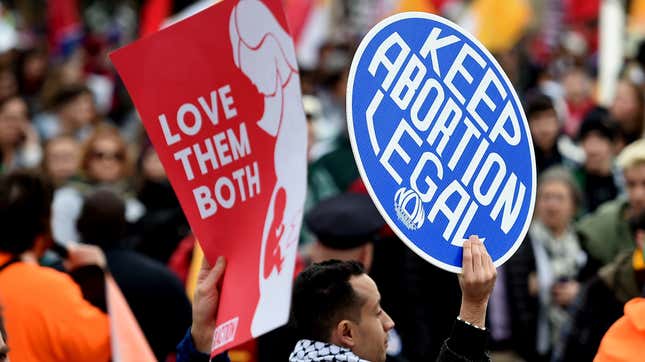Overthrowing Roe Without Overthrowing Roe
Latest

On Wednesday, the Supreme Court will hear oral arguments in a case that could loudly overturn Roe v. Wade—or, more likely and more insidiously, quietly render it an air-quoted technicality. It is the first abortion case to come before the conservative-majority court, stacked by Trump appointees Neil Gorsuch and Brett Kavanaugh, and reproductive rights activists fear it will open the floodgates to legal incursions meant to strategically and systematically erode the right to abortion in this country. The court’s ruling could enable a new era of anti-abortion activism that makes the incremental back-door assaults on Roe in past years seem tame and inefficient by comparison.
The case, June Medical Services v. Russo, is a challenge to a Louisiana law requiring abortion providers to have hospital admittance privileges within a 30-mile radius, which anti-abortion activists have found is a stunningly effective way to shutter clinics en masse, due to prohibitive requirements. In fact, the Louisiana law is nearly identical to Texas’s HB 2, which similarly required hospital admittance privileges and led to the shutdown of 21 of the states’ 40 clinics. (Perhaps you recall Sen. Wendy Davis 11-hour filibuster in 2013, which temporarily delayed the bill’s passage.) This approach is equally brilliant and morally corrupt: Under the guise of concern for women’s health (there is no valid medical argument for the hospital requirement), anti-abortion activists render the procedure broadly inaccessible in a given state.
-

-

-

-

-

-

-

-

-

-

-

-

-

-

-

-

-

-

-

-

-

-

-

-

-

-

-

-

-

-

-

-

-

-

-

-

-

-

-

-








































